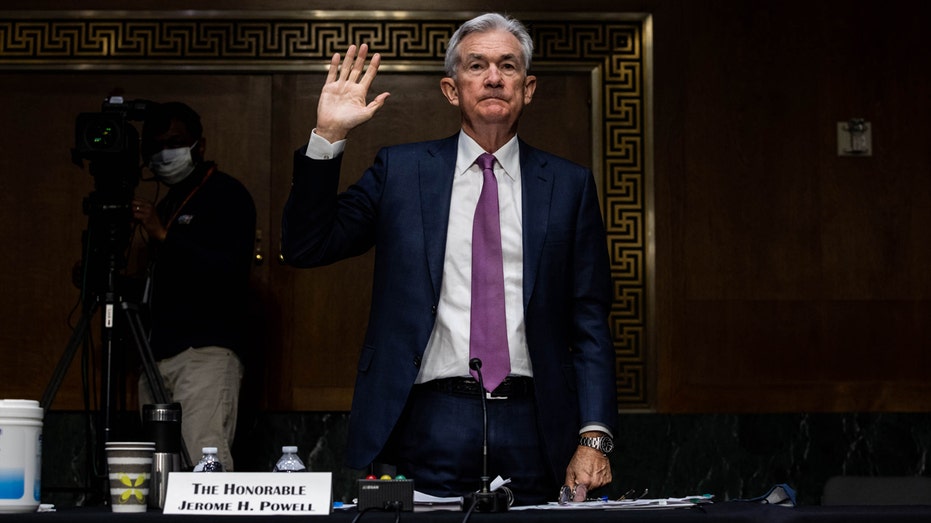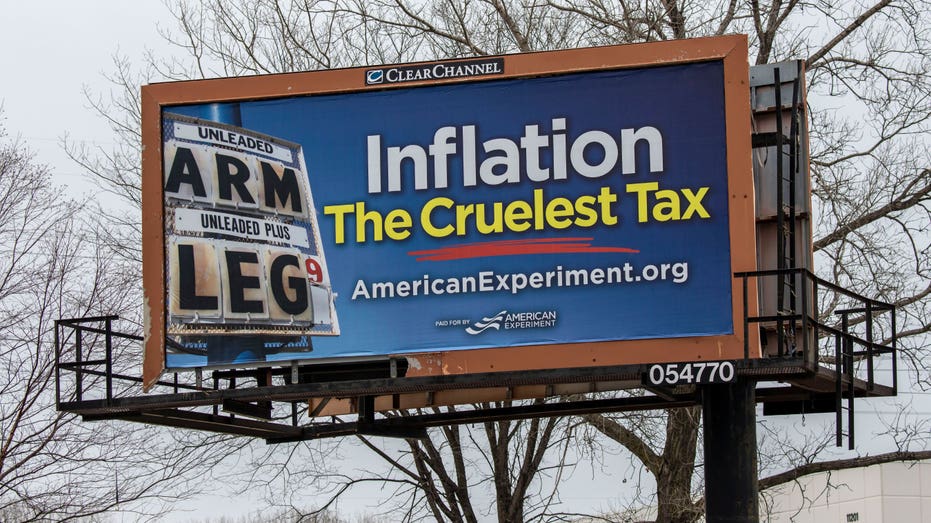Powell pummeled over inflation, jobs at confirmation hearing, despite bipartisan support for Fed chair
Powell promises to combat entrenched inflation
Would the Fed risk triggering a recession?
NatWest Markets global economics co-head Michelle Girard analyzes the December jobs report on 'Making Money.'
Jerome Powell is expected to sail through the confirmation process to lead the Federal Reserve for another four years with broad bipartisan support, but that didn't stop lawmakers from tearing into the central banker over everything from soaring inflation to a string of trading scandals at the central bank.
Powell, who testified before members of the Senate Banking Committee on Tuesday after President Biden nominated him to a second term as Fed chairman, defended his record as the leader of the world’s most powerful central bank as he navigates a bewildering economic outlook.
The U.S. economy is growing at a solid pace, but it faces challenges in the year ahead from repeated COVID-19 outbreaks, the hottest inflation in nearly four decades, a labor shortage and supply-chain bottlenecks.
FED DOUBLES TAPER RATE, EYES THREE INTEREST RATE HIKES IN 2022
"We are strongly committed to achieving our statutory goals of maximum employment and price stability," Powell said in his prepared testimony. "We will use our tools to support the economy and a strong labor market and to prevent higher inflation from becoming entrenched."
But lawmakers were not placated, pushing Powell – who already steered the economy through the worst recession in nearly a century – to explain why the Fed did not act on combating inflation sooner and how policymakers planned to pull back on support without inadvertently triggering another recession.

Jerome H. Powell, Chair of the Board of Governors of the Federal Reserve, is sworn in during a confirmation hearing before the Senate Banking, Housing and Urban Affairs Committee on Jan. 11, 2022, in Washington, D.C. (Graeme Jennings-Pool/Getty Images / Getty Images)
Republicans grilled Powell over his initial forecast that inflation would be transitory and would dissipate as pandemic-induced disruptions in the supply chain abated. Powell has since acknowledged that inflation has been higher and longer-lasting than the Fed anticipated, and has charted out a more hawkish path for the central bank to pull back its support for the economy.
Sen. Pat Toomey, the ranking member of the Senate Banking Committee, argued the Fed should have started winding down its massive bond-buying program sooner, suggesting the central bank's purchase of $120 billion a month in mortgage-backed securities and Treasury bonds helped fuel inflation.
"We’re more than a year into record economic expansion, with unemployment at near all-time lows, and yet the Fed is still buying government and agency securities," Toomey said.

Sen. Pat Toomey, R-Pa., questions Treasury Secretary Steven Mnuchin during a Congressional Oversight Commission hearing on Capitol Hill in Washington, D.C., Thursday Dec. 10, 2020. (Sarah Silbiger/The Washington Post via AP, Pool / AP Newsroom)
The Pennsylvania Republican also called it a "mistake" for the Fed to keep buying bonds once the economy began to recover. The Labor Department last month said that inflation soared 6.8% in November from the same month a year earlier, the fastest pace since June 1982.
"None of the Fed’s pandemic actions came without a cost," Toomey said. "This negative-real interest rate environment continues to distort markets, risk asset bubbles and punish savers. And the Fed has dramatically expanded its balance sheet with trillions in government bonds, effectively monetizing a lot of debt, facilitating profligate government spending."
The Fed began tapering its bond purchases in November by $15 billion a month, and announced during its December meeting that it would double that to $30 billion beginning in January. Under that timeframe, the central bank is poised to conclude the program by March, allowing Fed officials to begin hiking interest rates and reducing the $8.8 trillion balance sheet.
AMERICANS' INFLATION FEARS STAYED AT RECORD HIGH IN DECEMBER: NY FED SURVEY
Powell said he expects inflation to subside by the middle of the year, but that the Fed needs to take whatever actions are needed to prevent higher prices from becoming "entrenched." Minutes released from the central bank's December meeting show that officials are prepared to raise rates "sooner and faster" than initially expected in order to combat the inflation surge.
"We are going to have to be humble but a bit nimble," he told lawmakers.

Billboard on the cruelties of inflation in Coon Rapids, Minnesota. (Universal Images Group via Getty Images / Getty Images)
Powell was also forced to rebuff concerns from the left that a faster normalization of policy would slow hiring and potentially leave many workers, particularly lower-income Americans, without a job. Hiking interest rates tends to create higher rates on consumers and business loans, which slows the economy by forcing them to cut back on spending.
Sen. Sherrod Brown, the chairman of the Senate Banking Committee, urged the Fed to not prematurely end its support for the economy and suggested that corporations and supply chain shocks are the real driving force behind inflation. He pressed Powell to put workers first.
"Some are suggesting though that the Fed pull back on its support of the broader economy, and make it harder for people to get jobs," Brown, D-Ohio, said. "When people talk about ‘cooling off’ the economy, what they really mean is making it harder for people to find jobs and stopping paychecks from growing."
Brown also asked Powell whether he intends to make climate risk stress tests for banks a priority during his second term.
"It’s very likely stress scenarios, as we like to call them, will be a key tool going forward," Powell said. "Climate stress scenarios at this stage are really about ensuring that the large financial institutions understand all the risks that they're taking, including the risks that may be inherent in their business model regarding climate change."
CLICK HERE TO READ MORE ON FOX BUSINESS
But Toomey, who has been an outspoken critic over what he considers to be a politicization of the top bank, warned there would be consequences if the Fed ventured beyond its Congress-given mandate of stabilizing prices and ensuring maximum employment.
"Let me be clear," he said, "if this politicization continues unchecked, it will not end well for the Fed or for independently driven monetary policy."
Despite the misgivings they expressed, both Brown and Toomey have said they will support Powell for a second term. Powell is expected to glide through the confirmation process with enough bipartisan support, even though some lawmakers on both sides of the aisle – including Sen. Elizabeth Warren, D-Mass. – have said they will not back him.





















